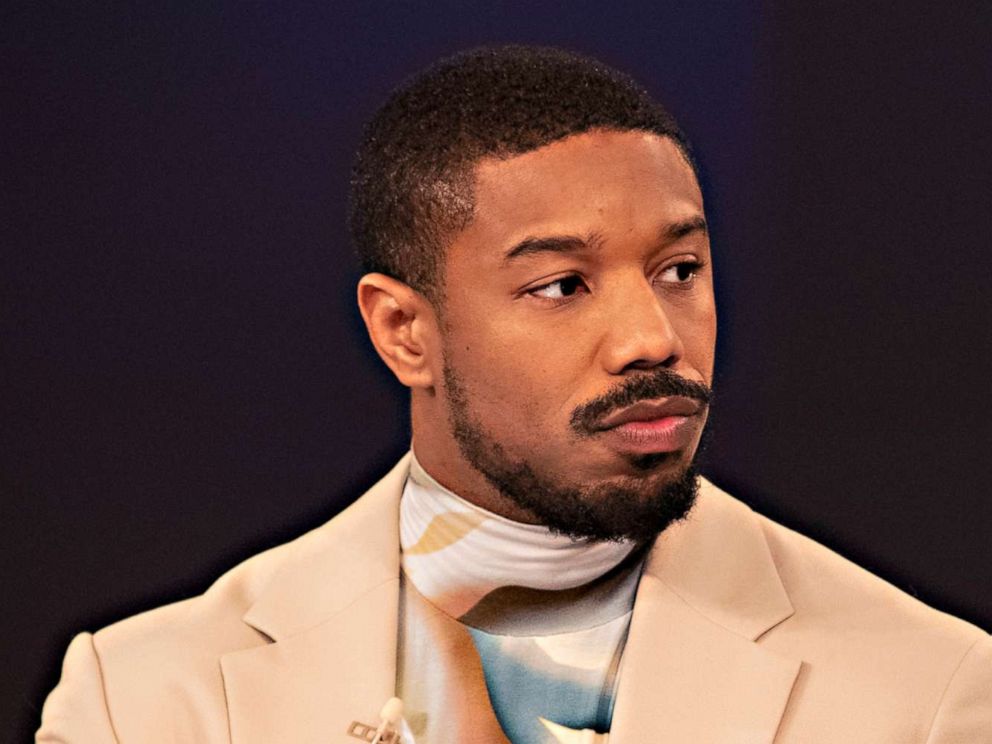How Michael B. Jordan is making Hollywood more inclusive with 'Just Mercy'
"Just Mercy" is the first film Warner Brothers implemented an inclusion rider.
Michael B. Jordan is known for his leading roles in box office hits like "Black Panther" and "Creed." Now, he'll be recognized in Hollywood for his efforts to make the entertainment industry more inclusive.
The "Just Mercy" star discussed on Thursday his attempts bring positive change to the industry by using inclusion riders on all of the films he's involved in. Actors and filmmakers include inclusion riders in their contracts to demand more diversity — women, people of color, LGBTQ people, and those with disabilities — among the cast and production staff of films they're working on.
Jordan was inspired by actress Frances McDormand's "powerful" acceptance speech for best actress at the 2018 Academy Awards when he "just happened to be in the audience."
"I have two words to leave with you tonight, ladies and gentlemen: inclusion rider," McDormand said during her speech.
Google searches for "inclusion rider" spiked in the wake of McDormand's speech and there were more than 7,000 tweets mentioning the term in the 20 minutes after her speech concluded.

"It’s not bulletproof. It’s not one of those things where, you know, they have to be hired," Jordan said of hiring cast and crew under inclusion riders during his appearance on "The View" Thursday. "It makes them have a shot. Half the time it’s being seen and getting the opportunity to get a job."
Jordan went on to say that it's "human nature" in Hollywood to hire friends and former colleagues, but inclusion riders ensure "everybody gets [an] opportunity to be seen, gets [an] opportunity for that same position, and it’s a step."
In Jordan's latest film, "Just Mercy," he portrays real-life civil rights lawyer and activist Bryan Stevenson. The Harvard-trained attorney has worked to change the justice system for over 30 years, and the film depicts his fight to free an Alabama man on death row, who is played by Jamie Foxx. It's the first time that Warner Brothers has put an inclusion rider into effect.
"[I'm] finally getting the ability to tell stories and have the influence to affect my environment and how I tell stories and make movies," Jordan, a producer of the film, said.
Calling Stevenson a real-life superhero, Jordan admitted he "was almost embarrassed" that he didn't know Stevenson's work when they met four years ago.
Co-hosts Abby Huntsman asked how he hopes the film will translate into real-world change and whether it shifted his own perceptions on life.
"I walk around in this. I know that anxiety, that angst when I walk out the doors. I live by a different set of rules," Jordan said about being a person of color. "That normalization is what we want to, you know, change."
He went on to speak about the impact he noticed the film had on others after it premiered atthe Toronto International Film Festival.
"The questions that we got afterward was like, 'What can I do to help? How can I be a part of the change?" Jordan said.
"If you leave this movie feeling hopeful and inspired and optimistic... educate yourself," he continued. "Exercise your right you know find out who your local prosecutor is. Find out what bills and policies are being put in place and if you feel so inclined to do so, you know, get behind a message. ... The voice of the people is very important. It’s powerful."
Every episode of ABC's award-winning talk show "The View" is now available as a podcast! Listen and subscribe for free on Apple Podcasts, Google Podcasts, TuneIn, Spotify, Stitcher or the ABC News app.




